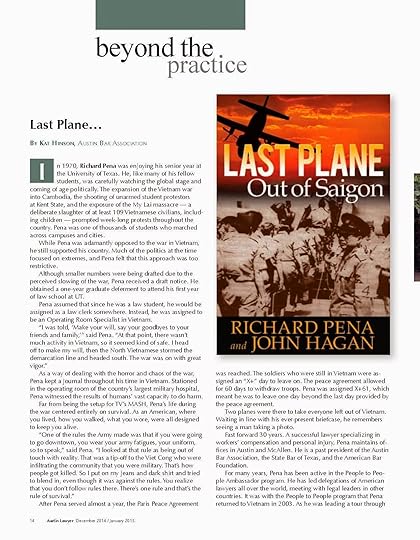Kenneth Atchity's Blog, page 175
December 31, 2014
Happy 2015!
Published on December 31, 2014 00:00
December 29, 2014
Austin Lawyer Magazine Features Richard Pena's Last Plane Out of Saigon
Published on December 29, 2014 13:03
December 23, 2014
Portland Book Review on Dennis Palumbo's Phantom Limb "The best yet .."
 Psychologist Becomes Embroiled in Murder Mystery Buy On Amazon
Psychologist Becomes Embroiled in Murder Mystery Buy On Amazon

By Dennis Palumbo
Poisoned Pen Press, $24.95, 336 pages
Daniel Rinaldi is a psychologist with a private practice in Pittsburgh. At a first appointment with a patient, he is stunned to see that his new client is Lisa Harland, a former Plalyboy model and actress. She is from the Pittsburgh area and returned after her career faltered in Hollywood. Now she is married to a very wealthy local tycoon, and she tells Rinaldi that she plans to kill herself by 7:00 p.m. It is up to him to persuade her to live and to get to the bottom of why she wants to die. But as she leaves the appointment, she is kidnapped and held for ransom, an event that soon drags Rinaldi into peril.
Phantom Limb is the fourth mystery featuring Daniel Rinaldi, an intrepid hero who frequently finds himself drawn into puzzling and dangerous situations while trying to help his patients. This novel is the best yet, with an engrossing plot and entertaining characters who frequently stumble into trouble. The author has sprinkled the pages with beautiful descriptions that add to the enjoyment of this action adventure.
Reviewed by Fran Byram
Reposted from Portland Book Review
Published on December 23, 2014 00:00
December 22, 2014
Jerry Amernic talked to students to find out what they knew about the Holocaust.
 Jerry Amernic
Jerry Amernic Special to the Tribune
Have you ever played Trivial Pursuit with a young person and let them try the History category? It’s incredible what they don’t know, and last month I found out first hand. My latest novel was turned down by a publisher because the editor didn’t believe my thesis that knowledge of the Holocaust would be abysmal one generation from now, so I produced a video.
It was during Holocaust Education Week and a few days before Remembrance Day. We went around asking university students in Toronto some questions.
I asked the first two if they knew when the Holocaust occurred. They looked at each other dumbfounded before one said “1980…” only to have her friend interject with “No it wasn’t the 1980s.” They then concluded it had taken place in the 1940s. As to how many Jews were killed, “a million” sounded about right.
I posed a different question to the next students. Had they ever heard of The Final Solution? No. How about D-Day and the beaches of Normandy? Keep in mind this was just before Remembrance Day.
One shook his head ‘no,’ while the other said something about D-Day being the last day of the war. I asked if they knew who FDR was. Nope. How about Churchill?
“Winston Churchill?” the girl said. She knew the name but had no idea who he was. The guy she was with said he had heard the name from a history class long ago and acknowledged that there was a statue of Churchill at Nathan Phillips Square, but who he was and what he did was a mystery.
The next student told me D-Day fell on Feb. 14 and that “thousands” of Jews had been killed in the Holocaust. Normandy? That was tough. Another one said he had heard of the Holocaust, but couldn’t explain it.
I tried a different approach with the next pair. I asked who the Allies were. Surely they would know this a mere three days before Remembrance Day.
“These aren’t easy questions,” one of them said, laughing. Neither of them had any idea. How about D-Day? A glimmer of recognition and one said it was June 6th, which is correct.
“Do you know what happened on D-Day?” I asked.
No.
“Do you know who was fighting who?”
No.
I tried The Final Solution on three more students. Two of them shook their heads and one said it had something to do with the Holocaust, but that was it.
“Ever heard of Joseph Mengele?” I asked.
Uh-uh.
Undeterred, I pressed on. A girl told me that the Allies were Germany and Russia before correcting herself with the realization these countries were on opposite sides. Who were the Allies? She didn’t know. I threw in the bit about D-Day and the beaches of Normandy – her friend said Normandy was in London – but neither had the faintest idea what happened that day and it got me thinking.
This was two weeks after a Canadian soldier had been gunned down while standing guard at the War Memorial in Ottawa (see pages 1 and 2), and another soldier had been run over and killed in Quebec.
Remembrance Day ceremonies would be poignant affairs this year. I wondered what a war veteran who had stormed Juno Beach on June 6, 1944 would think about the current generation knowing nothing about D-Day, never mind the Holocaust.
I tried one more student. Could she tell me who the Allies were? No. How about The Final Solution? No.
My novel, The Last Witness, is set in the year 2039 and is about a 100-year-old man who is the last living survivor of the Holocaust. But he’s living in a world that is ignorant and complacent about the last century and there are many reasons for that but number one is the fact the schools don’t teach this stuff anymore and haven’t for some time.
In Ontario today you can take one history credit in Grade 9 and never open a history book again. In my day we had Social Studies – which combined History and Geography – in the early grades, and we always had history in high school.
Not anymore.
The result is The Lost Generation when it comes to history, and that’s why those students were scratching their heads searching for a tidbit about Churchill, Normandy or the Holocaust. This profound level of ignorance was my premise that the publisher’s editor didn’t buy in a world 25 years from now. I don’t know if that editor has seen my video, but he should.
Jerry Amernic is the author of historical novels. The Last Witness is available on Amazon and the video mentioned in this article is accessible at:
Published on December 22, 2014 12:59
December 17, 2014
My Book: Phantom Limb by Dennis Palumbo

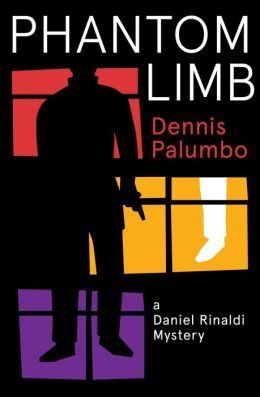 In my new Daniel Rinaldi thriller, Phantom Limb, one of the main characters is an Afghan vet who lost his leg to an IED while out on patrol with his unit. Now, stateside, he struggles with a growing substance abuse problem, as well as some of the predictable psychological aftereffects of such a life-changing trauma.
In my new Daniel Rinaldi thriller, Phantom Limb, one of the main characters is an Afghan vet who lost his leg to an IED while out on patrol with his unit. Now, stateside, he struggles with a growing substance abuse problem, as well as some of the predictable psychological aftereffects of such a life-changing trauma.Moreover, he often experiences the bewildering sensation that his missing limb is still attached to his body. It itches, aches, or feels cold. Often, at night, while his prosthetic leg is propped against the wall across the room, the former Marine tosses and turns in bed, maddened by the tingling, burning sensation in his “phantom limb.”
Prior to becoming a licensed psychotherapist, I did intern work at a private psychiatric facility where I encountered a number of amputee patients suffering from this condition. But it wasn’t until I began researching the new novel that I discovered that up to 80 percent of people with amputations experience phantom limb sensations. Fortunately, in most cases, the symptoms lessen over time.
But what causes this extraordinary syndrome? At present, there’s no exact answer. For many years, the accepted theory was that once a limb is amputated, the severed nerve endings continued to send signals to the brain. Which then re-wires itself to adjust. To put it simply, from the brain’s standpoint, this meant the severed limb was still “there.”
However, more recent research suggests that phantom limb sensations originate in the peripheral nervous system, not the brain. They are the result of alterations in the body’s wide neural network, outside the primary areas in and around the brain. Of course, none of these theories do much to reduce or eliminate the patient’s uncanny experience. Just as most treatment methods have shown less than hoped-for results. Patients have been prescribed everything from anti-depressants to biofeedback, muscle relaxants to hypnosis. In some cases, doctors have tried electrical nerve stimulation. For example, inserting an electrode into the spinal cord, and then delivering a small electric current to relieve discomfort.
Regardless of treatment approaches, both the sudden loss of an arm or leg, as well as the phantom limb symptoms that often occur, are indicative of the psychological trauma accompanying such extreme injuries. Whether caused by an explosive device buried in the sand or as the result of an auto accident, the sudden loss of a limb is an emotional as well as a physical disruption of a person’s world.
In my novel, the character’s phantom limb symptoms serve as a metaphor for the sense of absence we all feel when a part of us—either due to an actual physical injury or some deep personal loss, such as a painful divorce or the death of a loved one—is wrenched away. Leaving nothing, to our mind’s eye, but a persistent, almost palpable ghost. Gone, and yet not gone.
Dennis Palumbo, Phantom Limb, Poisoned Pen Press, September 2014
This article first appeared in Mystery Scene Fall Issue #136 .
Reposted from Mystery Scene Mag.com
Published on December 17, 2014 00:00
December 15, 2014
Rewriting History
 This painting of a War of 1812 battles graces the cover of Ronald Drez’s novel.If every story has two sides, the Battle of New Orleans is the poster child of storytelling.
This painting of a War of 1812 battles graces the cover of Ronald Drez’s novel.If every story has two sides, the Battle of New Orleans is the poster child of storytelling.Some regard it as an unnecessary epilogue to the War of 1812, as the treaty to end the war was signed hours after the two-week battle began. Others consider the battle to be a victorious end to the war, and an integral component of shaping both Louisiana and U.S. history.
Ronald Drez takes the latter stance. The author of LSU Press’s The War of 1812, Conflict and Deception asserts that the British strategy and the successful defense of New Orleans, through the leadership of Gen. Andrew Jackson, affirm the serious implications of the climactic battle that firmly secured the Louisiana Purchase territory for the U.S.
“It truly was the final revolution,” stated LSU alumnus Fred Atchity. LSU Foundation Board member Henson Moore, part of the commission selected to commemorate the battle’s bicentennial celebration, approached Atchity to support publication of the book, which was, at the time, not yet completed.
Atchity went a step further. He spoke with his brother, Ken, with whom he owns Atchity Brothers Entertainment. Together the brothers not only made a donation to help underwrite the book, but also hired Drez as historical advisor for his research-inspired movie they are producing.
“The book and the movie will set history straight on how important that war was, and what a great victory it was,” Fred said.
The movie is planned to begin shooting in spring 2015 and to be released for the 2015 Battle of New Orleans Bicentennial celebration.
Through the use of primary sources, Drez provides a deeper understanding of Britain’s objectives, as well as an accurate and compelling account of the battle. “Our movie is going to be authentic,” Fred shared, adding that after completion of the film, the brothers plan to send copies of both the book and the movie to high schools and colleges throughout Louisiana. “Maybe that will help teach the people in Louisiana how important the battle was.”
Reposted from LSU Foundation
Published on December 15, 2014 00:00
December 12, 2014
AUTHOR INTERVIEW: RACHEL WALSH – THE LAST SCRIBE
 Rachel Lee Walsh, is one of those all inspiring women that has covered and conquered various obstacles and still stands tall in sharing and inspiring life for others. As M.A is a reflection of so many artists’ journeys, it is once again a huge honour to be able to share details on Rachel’s latest release – The Last Scribe.
Rachel Lee Walsh, is one of those all inspiring women that has covered and conquered various obstacles and still stands tall in sharing and inspiring life for others. As M.A is a reflection of so many artists’ journeys, it is once again a huge honour to be able to share details on Rachel’s latest release – The Last Scribe.
Thanks for sharing your story.
As a start, can you tell our readers a bit more about yourself?
I would be delighted, Nadine. Thank you so much for asking.
I guess I would say that I'm first and foremost a mother and second of all an artist, poet and storyteller. I live in a small town in North Idaho and have two beautiful and talented daughters who are also artists in their own right. I also have two adorable but lazy dogs, a kamikaze cat and a reclusive hamster named Wink. For the last several years I've also been the caretaker for my grandfather who suffers from advanced Alzheimers.
Any, weird and wacky author habits? When I edit my manuscripts I have to go into my bedroom closet. It's the only place in my house where there's no distractions or interruptions. Some of my best ideas have come to me while sitting in a pile of shoes with a rack of clothes touching my head.
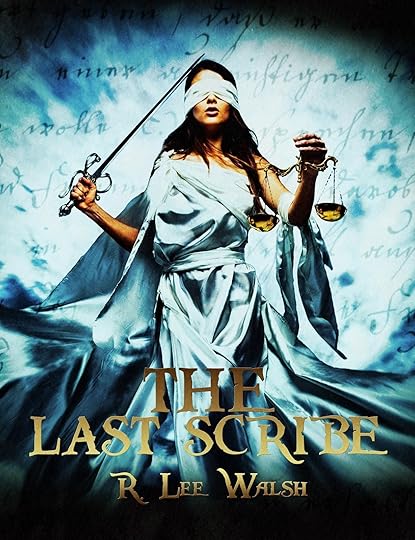 What inspired the Last Scribe? A great deal of what I've written in the past is stories from my own life, but I had this fiction story always in the back of my mind. I envisioned a heroine who questioned everything yet stood strong in what she truly believed in. One day I was in a second hand book store and saw the Apocrypha. As someone raised in a very religious environment, of course I'd never been allowed to read it. I took it home and read through the whole thing in a few days and when I was done, I knew I had my story. It took three years of development and another four years to actually write it but as of now, The Last Scribe Series includes three full length novels and seven novellas and I've loved every minute of it.
What inspired the Last Scribe? A great deal of what I've written in the past is stories from my own life, but I had this fiction story always in the back of my mind. I envisioned a heroine who questioned everything yet stood strong in what she truly believed in. One day I was in a second hand book store and saw the Apocrypha. As someone raised in a very religious environment, of course I'd never been allowed to read it. I took it home and read through the whole thing in a few days and when I was done, I knew I had my story. It took three years of development and another four years to actually write it but as of now, The Last Scribe Series includes three full length novels and seven novellas and I've loved every minute of it. Your novel includes history on the Book of Enoch, a book we all know was banned from the bible, how has readers reacted towards your story? So far I've had two different reactions. Most people have no idea what the Apocrypha is, let alone the Book of Enoch. Those who do are either fascinated by what I've done or scared to even read it. I've had a few people accuse me of treading on dangerous ground by using this as a story basis. However, I've yet to have anyone complain or question my motives after they actually read it.
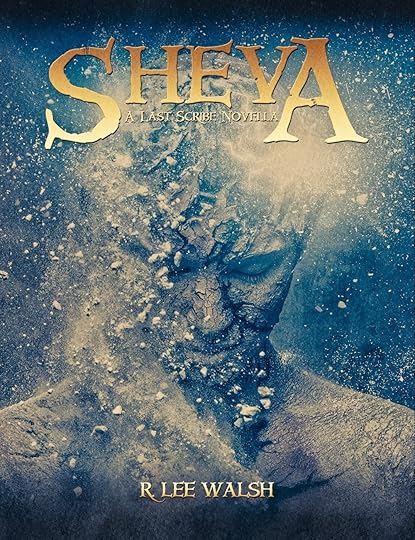
Your main character – Hope Matthews - takes a strong female lead, can you tell our readers a bit more about her. Hope is the last surviving descendant of Enoch and the epitome of an imaginative, passionate girl who struggles with feelings of inferiority and personal rejection. Being left by her father at a young age and forced to conform and compete in another family, she has identity crises that cause her to act irrationally. She is tremendously strong willed, but also fearless which gets her into trouble on a regular basis. By her very nature she is the perfect example of the fight between good and evil in all of us.
The last Scribe is not your first novel, can you tell our readers a bit more about your other published books and where they can find them. Currently, I have three prequel novellas available on Amazon. You can find them here: http://www.amazon.com/-/e/B00L31D45I
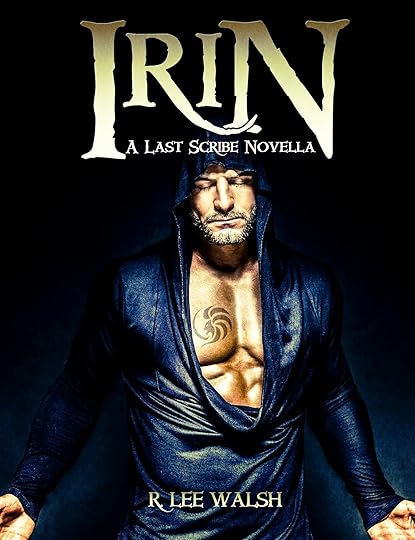
Will you ever allow your novels to branch over to film? Absolutely! The Last Scribe is currently represented by Ken Atchity of Atchity Entertainment and he has high hopes of seeing this series developed into a feature film.
Will there be more of Hope Matthews? I like to say there will always be Hope. Before she fades into memory I like to think her adventures will be exciting and entertaining readers for many, many years to come.
What does the future hold for Rachel lee Walsh? Stories and more stories, I hope. I truly love what I do and can't imagine doing anything else with the rest of my life. Right now I have at least ten other story ideas waiting for me to sit down and bring them to life.
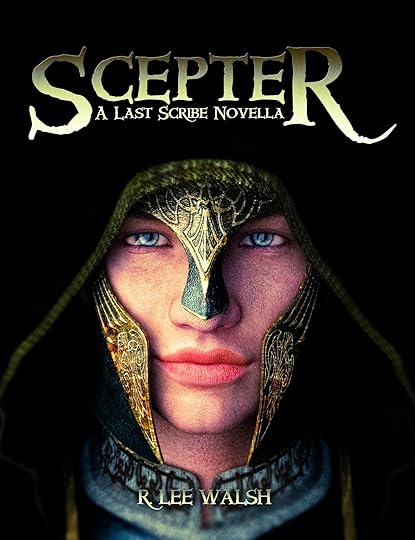 Where can readers connect with your work? You can find me at www.thelastscribe.com or www.rachel-walsh.net or on Facebook at or on Twitter @4wings4u and on Pinterest. Also, don't forget you can always find me on Amazon!
Where can readers connect with your work? You can find me at www.thelastscribe.com or www.rachel-walsh.net or on Facebook at or on Twitter @4wings4u and on Pinterest. Also, don't forget you can always find me on Amazon! Are there any tips and tricks you’d like to relay to other aspiring authors? Don't give up! I can't tell you how many writers I know who have given up on their stories without ever finishing them. Join a writing group with people you don’t know (objectivity) and really invest yourself in it. Listen to advice and critiques with an eye for improving your writing, not just arguing your point. If you want to be good at any craft, connections, and commitment and ongoing education is paramount. Reposted from My Addiction Books
Published on December 12, 2014 00:00
December 11, 2014
A Gift For You This Holiday Season!
Last Plane Out of Saigon

Happy Holidays!The season of giving is here so in the spirit of the holidays we want to offer you a free kindle e-book copy of the book!
Valid 12/10 - 12/12
We have partnered up with our publisher and Amazon to offer you a free downloadable, kindle e-book version of Last Plane Out of Saigon .
Get Your Free Copy!
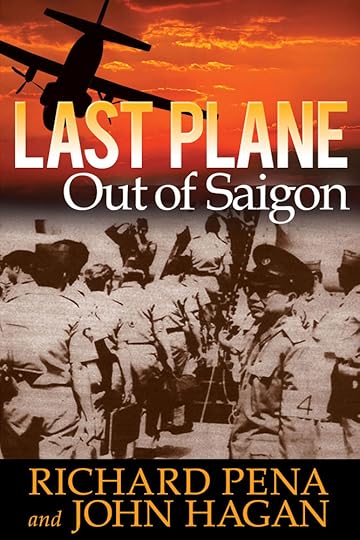
Connect With Us!
 Website
Website
 Facebook
Facebook
 Twitter
Twitter
 Google Plus
Google Plus
Published on December 11, 2014 15:25
December 10, 2014
What they're saying about Writing Treatments to Sell: "Excellent Resource for All Writers!"
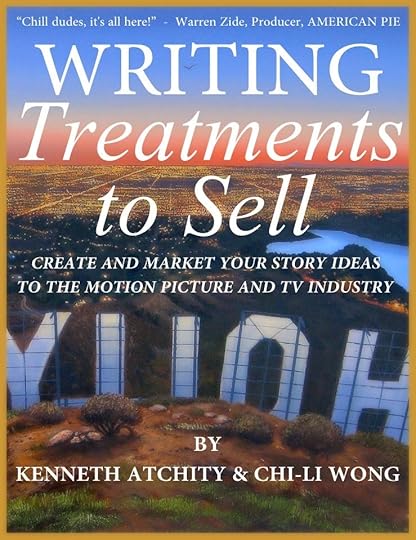

Five out of Five Stars Amazon Reviews:
"Writing Treatments That Sell, by Kenneth Atchity and Chi-Li Wong, is an excellent resource for any screenwriter who realizes the importance of writing successful treatments.
Many writers believe a treatment is another word for an outline, but the book makes it clear that a treatment is really a selling tool. While an outline is useful, a treatment must convey the essence of the screenplay. It should be written as a page turner.
A treatment should display conflict and resolution, character arcs, and the act structure of the screenplay. It should make the reader want to read the screenplay and see the movie. Kenneth Atchity and Chi-Li Wong show how to do that using excellent examples.
Additionally, the book provides information about the ins and outs of the film industry as well as how to protect your work through copyrighting. It offers more than the title suggests, and should be on every screenwriter’s shelf."
Published on December 10, 2014 00:00
December 9, 2014
Pittsburgh Post-Gazette Reviews Dennis Palumbo's Night Terror!
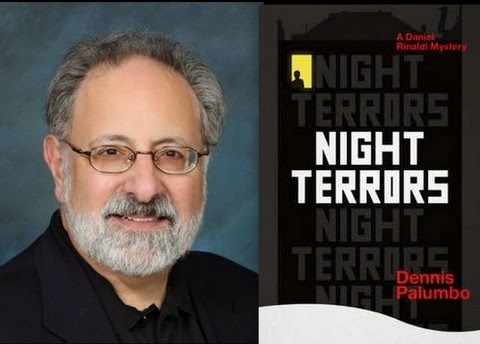
By Pohla Smith / Pittsburgh Post-Gazette
It’s no surprise that Dennis Palumbo’s hero in “Night Terrors: A Daniel Rinaldi Mystery” (Poisoned Pen Press, $27), the third installment of his four-book mystery series, is a psychologist working in an office located among the University of Pittsburgh’s many buildings in Oakland. Though he lives in Southern California, Mr. Palumbo is a Pittsburgh native who graduated from Pitt in 1973. He gave up a career as a screenwriter to become a psychotherapist.
His background has made for satisfying novels about hero Dr. Daniel Rinaldi, who takes time away from his patients to consult for the Pittsburgh police. Now, in “Night Terrors,” Dr. Rinaldi joins with Pittsburgh cops to work with the FBI.
The two law enforcement groups are after a killer who is destroying those he holds responsible for the conviction and death of another multiple killer he adored from a distance.
The psychologist becomes involved in the manhunt after the FBI calls on him to see its retired profiler Lyle Barnes, who is suffering from terrible night terrors in his sleep. Barnes is in protective custody with his former employer because the FBI believes he’s on the killer’s list. Barnes, however, runs away from the FBI’s tight custody, doubling the investigators’ problems.
While he’s involved with the Pittsburgh police and FBI manhunt, Rinaldi is persuaded to see a Wheeling woman distraught over the arrest of her grown son for a gruesome murder. The son has confessed, and the psychologist already has worked on the case for the Wheeling police, causing his reluctance to see the woman. But his new work with her and other happenings make him question her son’s guilt.
Even as Rinaldi wonders if the law can find Lyle Barnes before the killer gets him, he falls into a sexual relationship with a Pittsburgh detective he has long known and liked. How will the Barnes affair affect their affair?
And what about his work with the Wheeling woman? What time will he have to work with her and her belief in her son’s innocence? Could the two cases be related?
Complications abound, but Rinaldi — and Mr. Palumbo — resolve them in ways both plausible and enjoyable. Mr. Palumbo was a screenwriter for the film “My Favorite Year” and the TV series “Welcome Back, Kotter.” He did not lose his cinematic writing style when he became a psychotherapist.
He provides plenty of description in his novels, yet there are no wasted words. There are no wasted scenes either. Every one of them helps Rinaldi work successfully.
Mr. Palumbo’s first Dr. Rinaldi book, “Mirror Image,” was published in 2010. “Fever Dream” followed in 2011. His fourth installment “Phantom Limb” was recently released. He’s also the author of a short story collection called “From Crime to Crime” and the novel “City Wars.” His short fiction has appeared in “Ellery Queen’s Mystery Magazine,” “The Strand” and other collections. He also wrote the nonfiction book “Writing From the Inside Out.”
Reposted from the Post-Gazette
Published on December 09, 2014 00:00


